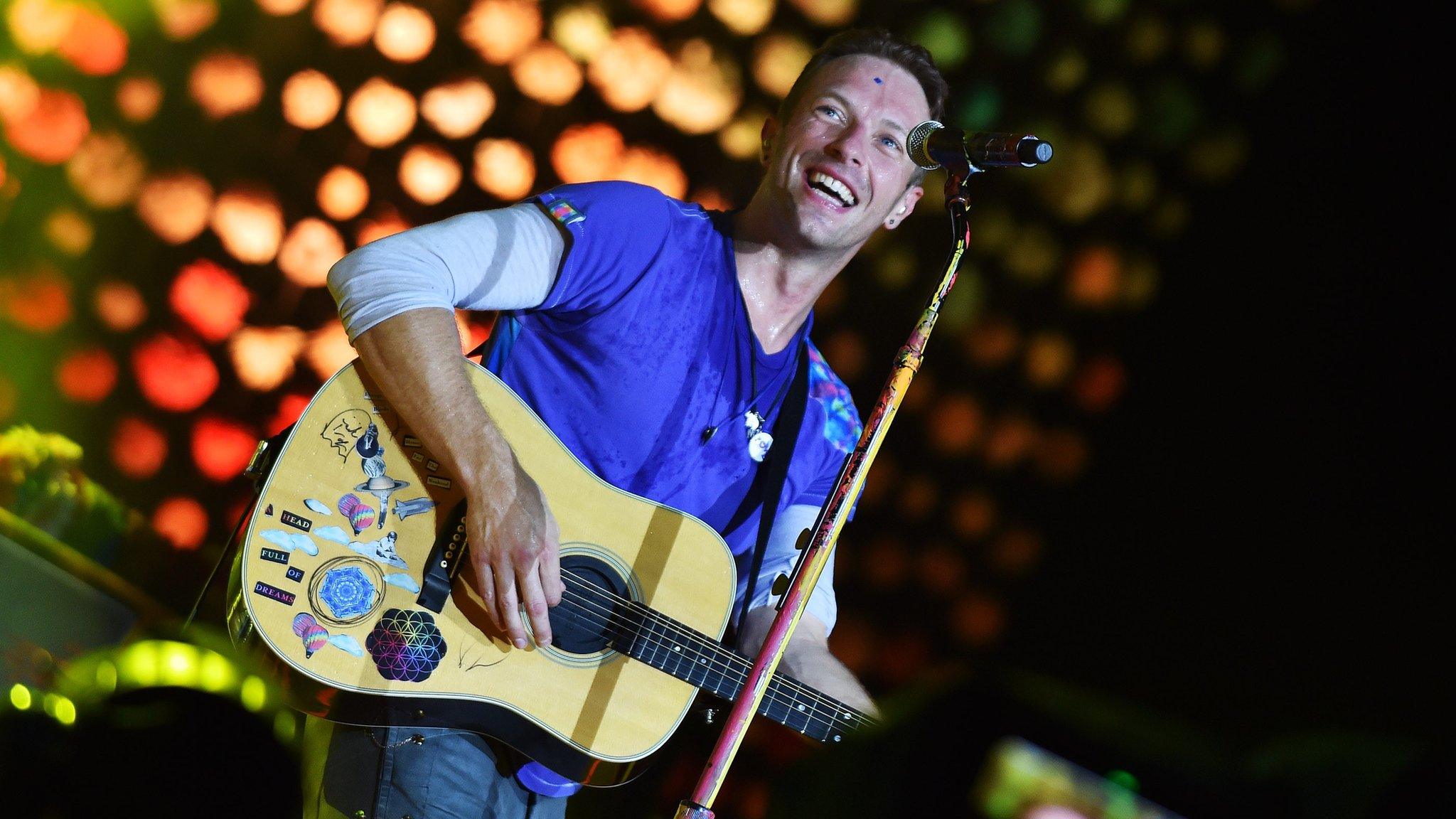Coldplay prove they're not fossils as they play Natural History Museum gig
- Published
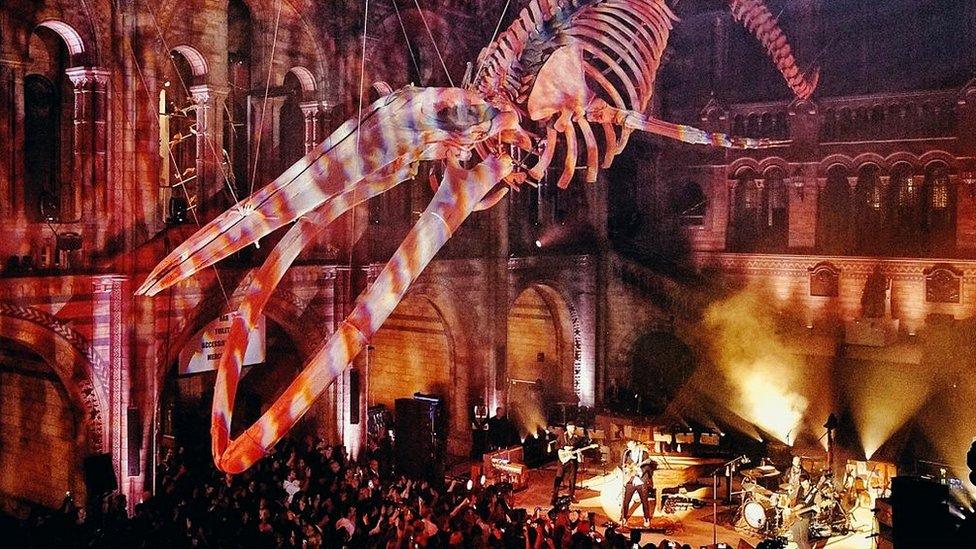
Coldplay performed the one-off show for the charity ClientEarth
Coldplay may have put their touring plans on hold, but a select group of fans were treated to a one-off show among the fossils at London's Natural History Museum on Monday.
It was a spectacular setting, with the museum's great hall bathed in pastel lights as the band played beneath Hope, a giant 128-year-old skeleton of a blue whale.
"I said, when we launch our album can we play a gig near Wales, and look what happened," joked Chris Martin, as he took to the stage.
"It's so hard, as a British person, not to come up with Natural History Museum puns for the whole show," he added. "But the last artist who tried that was Dodo and you know what happened to her."
His jokes may have prompted groans but, when it came to the songs, Martin was drowned out by the 1,000-strong audience singing along to hits like Sky Full Of Stars and Viva La Vida.
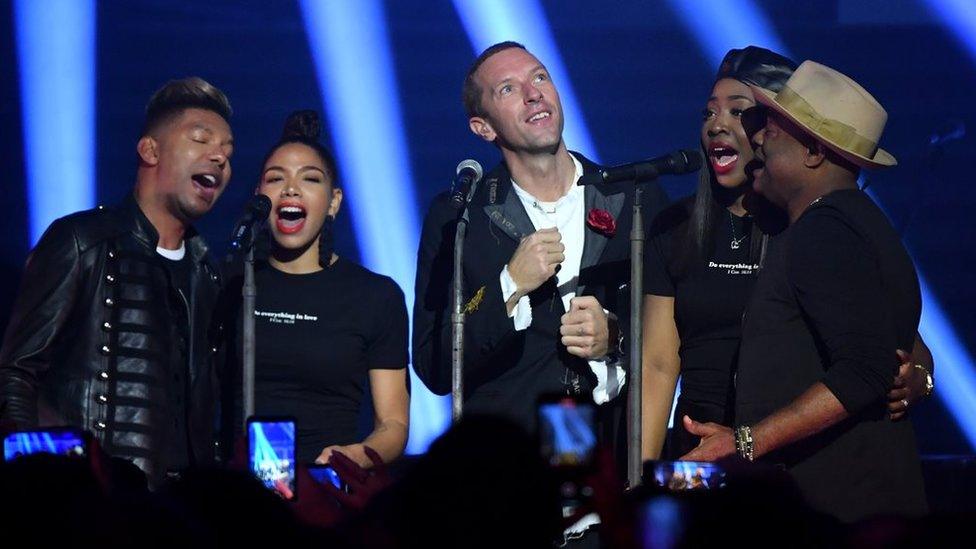
A four-piece gospel choir embellished several of the songs
For the most part, though, the set concentrated on Coldplay's latest record, Everyday Life - a playful and probing double album that cautiously ventures away from their lighters-out pop template.
They were joined on stage by Afrobeat scion Femi Kuti and his brass section for the limber and funky Arabesque, while Norah Shaqur added a beautiful Arabic verse to Church.
And some moments that fall flat on the new record - notably the anti-firearm anthem Guns - gained a little bite on the stage, with Martin spitting invectives at gun rights activists as he thrashed his acoustic guitar.
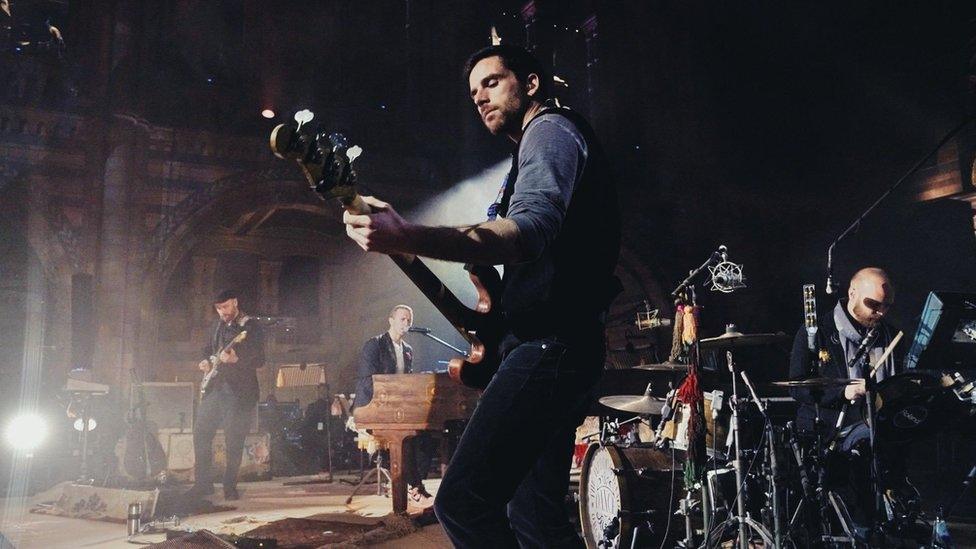
Bassist Guy Berryman shone, providing surprisingly supple grooves on songs like Orphans and Arabesque
In some respects, Coldplay have always felt like a church worship band, with their earnest goofiness and hand-on-heart positivity. It's an instinct they embraced on Monday night, handing out badges declaring "love", while supporting musicians wore T-shirts emblazoned with the Bible verse "Do everything in love".
They were even joined by a four-piece gospel choir, who embellished the harmonies (while politely declining to show up Martin's vocals) on tracks like BrokEn and Cry Cry Cry.
Martin was so enraptured by their presence that he asked them to reprise the final chorus of Fix You a capella, "so we can hear what our band would sound like if we had really good singers".
"Just imagine," he added. "We'd be playing much bigger venues than this place."
It was a knowing nod to the band's more usual habitat, playing to tens of thousands of fans in open-air stadiums. It's a mode of touring they have decided they can no longer pursue in good conscience - citing the environmental impact of taking a full-production rock concert on the road for 18 months or more.
"The hardest thing is the flying side of things," Martin told the BBC last week. "But, for example, our dream is to have a show with no single-use plastic, to have it largely solar powered. We've done a lot of big tours at this point. How do we turn it around so it's not so much taking as giving?"
Allow X content?
This article contains content provided by X. We ask for your permission before anything is loaded, as they may be using cookies and other technologies. You may want to read X’s cookie policy, external and privacy policy, external before accepting. To view this content choose ‘accept and continue’.

In that respect, playing the Natural History Museum felt like a recalibration, with the band exploring whether their music could work in smaller venues, with a minimal production. Proceeds went to the non-profit organisation ClientEarth (regrettably, though, the beer cups on the night were all single-use plastic).
Songs like Daddy and Sparks felt more intimate, while the big-tent anthems like Orphans lost none of their impact. And no-one missed the flashing wristbands or pyrotechnics of Coldplay's bigger shows.
Well, no-one except the frontman.
"Normally we have some fireworks at this point," he observed during Sky Full Of Stars. "But they said this building was too precious."
After 23 years, Coldplay might be rock dinosaurs, but they're not fossils yet.
See the set list below (Sky Full Of Stars was a last-minute addition to the encore, just before Guns).
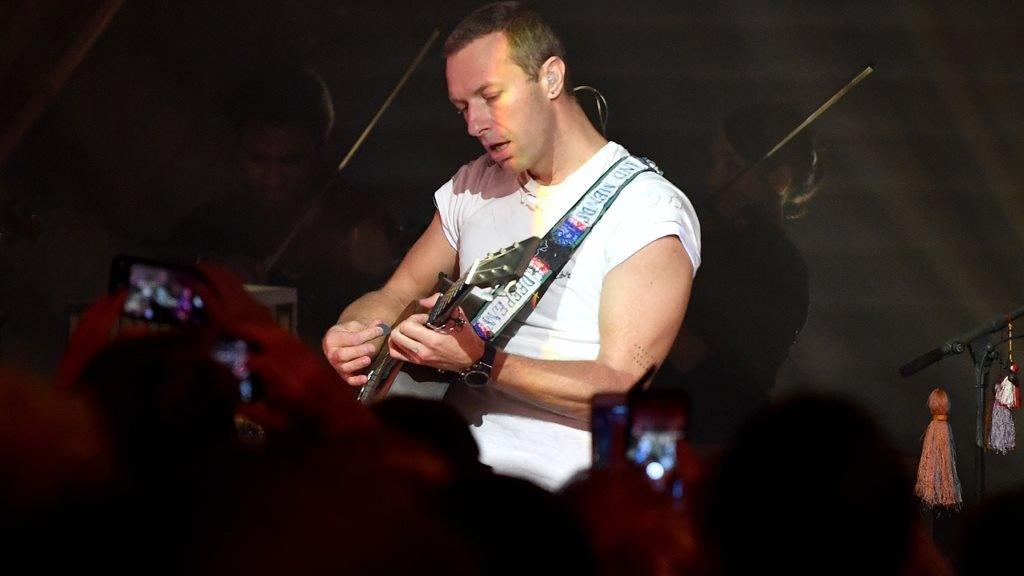
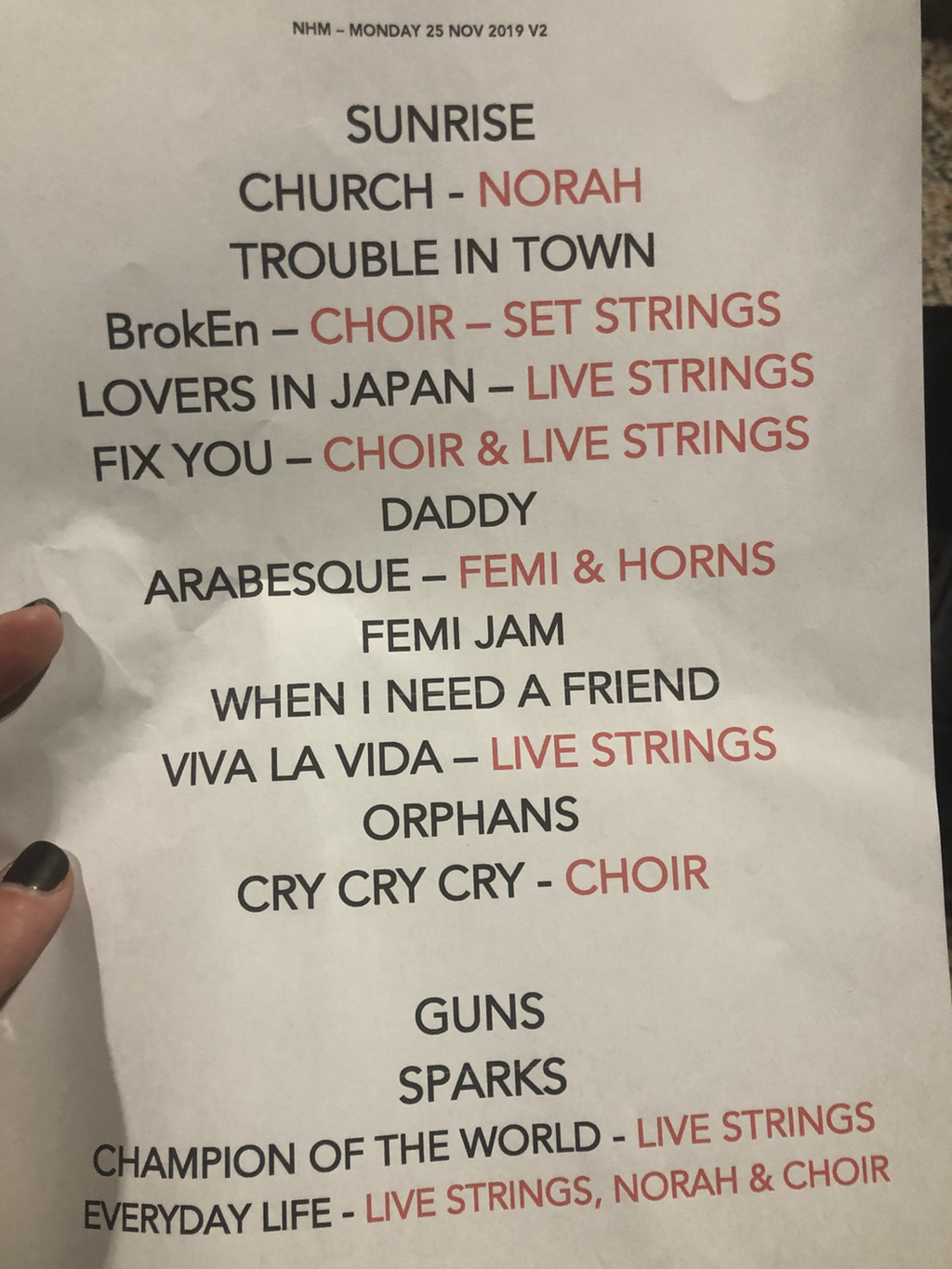


Follow us on Facebook, external, or on Twitter @BBCNewsEnts, external. If you have a story suggestion email entertainment.news@bbc.co.uk, external.
- Published21 November 2019
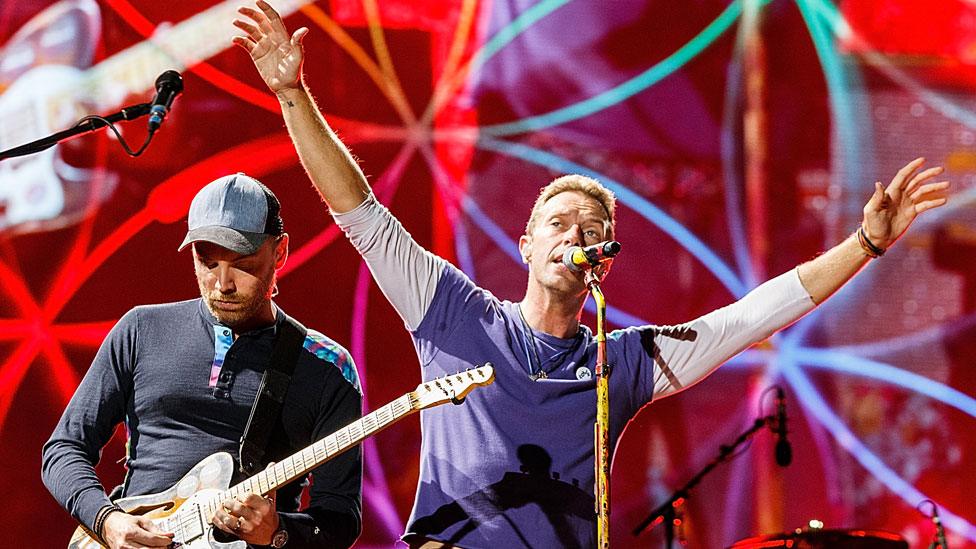
- Published24 October 2019
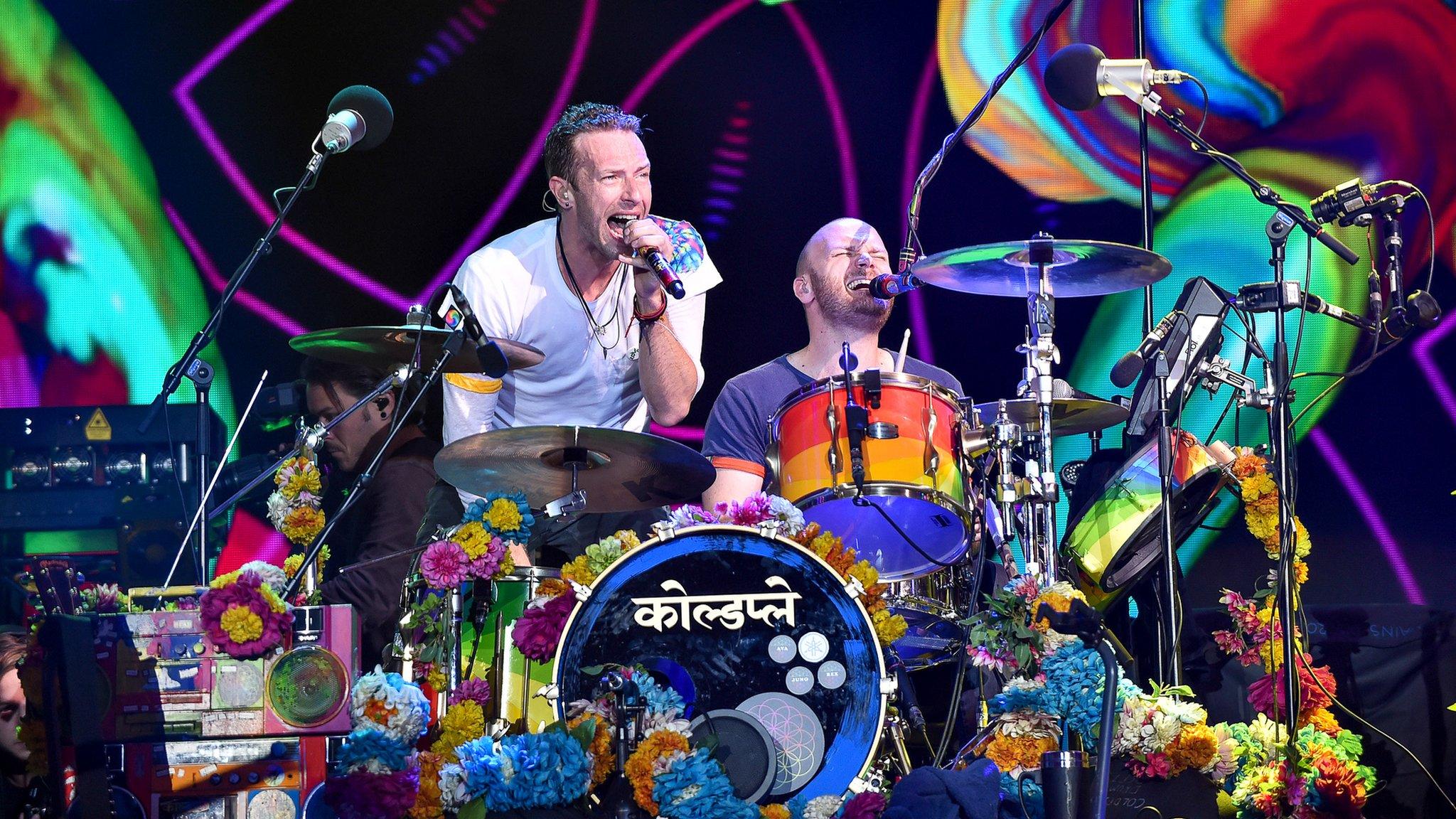
- Published21 October 2019
